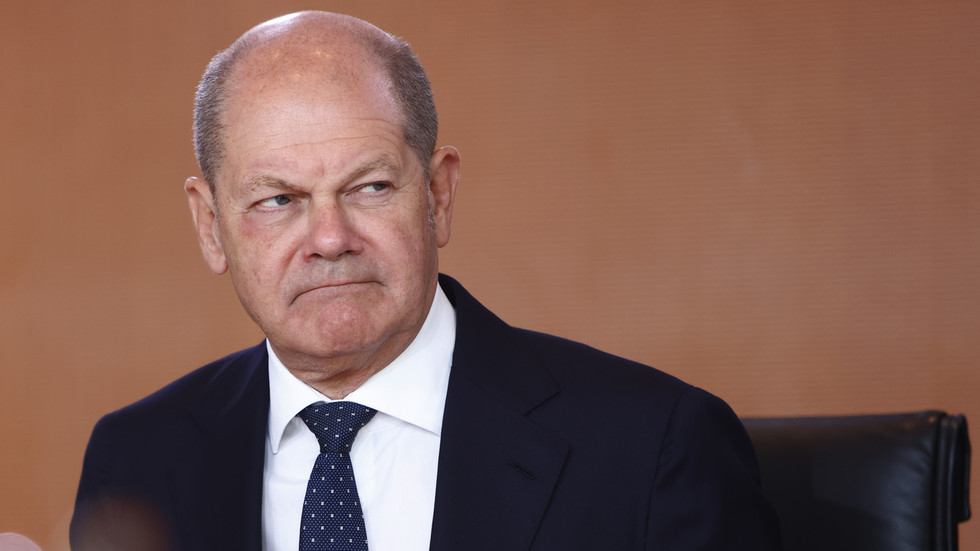US penalties target Sanaa central bank governor, as Houthis say they are undeterred by US and Israeli attacks.
Washington, DC – The United States has imposed new sanctions targeting the Houthis as the Yemeni group continues to trade attacks with Israel amid the war on Gaza.
The US Department of the Treasury announced penalties on Thursday on Hashem al-Madani, the governor of the central bank in Houthi-controlled Sanaa, and several Houthi officials and associated companies, accusing them of helping the group acquire “dual-use and weapons components”.
The US Treasury described al-Madani as the “primary overseer of funds sent to the Houthis” by the Quds Force of Iran’s Islamic Revolutionary Guard Corps.
Yemen has two competing central banks, one in the Houthi-controlled capital Sanaa that serves areas of the country controlled by the rebel group, and another in Aden for the areas of the country controlled by the internationally recognised government and other anti-Houthi groups.
Treasury official Bradley Smith said the sanctions aim to disrupt Houthi efforts to “secure additional revenue”.
“The United States will continue to expose these schemes and will hold accountable those who seek to enable the Houthis’ destabilizing activities,” Smith said in a statement.
Thursday’s measures suggest that Washington will continue to ramp up economic pressure on the Houthis as the US and Israeli militaries target areas that the group controls in Yemen militarily.
The penalties block the assets of firms and individuals in the US and make it largely illegal for Americans to engage in financial transactions with them.
The US sanctions came hours after Israel bombed targets in Yemen, including power stations near Sanaa, killing at least nine people.
The Israeli bombardment followed a missile launch by the Houthis, formally known as Ansar Allah, towards Tel Aviv.
The Yemeni group has been targeting Israel with drones and missiles in an effort to pressure the US ally to end its war in Gaza, where the US-backed Israeli military has killed more than 45,000 people.
The Iran-allied Houthis have also been carrying out attacks on shipping lanes in and around the Red Sea as part of the same campaign that they say is in support of Palestinians.
For months, the US and the United Kingdom have been bombing Houthi targets in Yemen in response to the Red Sea assaults.
Washington also listed the Houthis as “specially designated global terrorists”, a move intended to choke the group’s finances.
But the military campaigns and sanctions have not deterred the Yemeni group’s military operations.
Ansar Allah leader Abdel-Malik al-Houthi said on Thursday that the “Israeli aggression” will not change the Houthis’ position in support of Palestinians.
“We are up to the challenge and continuing to escalate,” he said in televised remarks. “We don’t care about what the enemies do. We are at war and in an open confrontation with them.”
Later in the day, the Houthis claimed another drone attack against Israel, saying that they were ready for a “long war with this enemy”.
Palestinian groups have been praising the Houthis for their military campaign. Abu Obeida, the spokesperson of Hamas’s Qassam Brigades, voiced support for the Yemeni group on Thursday after what he called the “terrorist” Israeli attacks.
“We praise the strong position of our brothers in Yemen in support of Gaza and call on them to escalate their attacks until the [Israeli] occupation submits and ends the genocide,” he said in a statement.
United Nations experts and rights groups have accused Israel of committing genocide in Gaza – an effort to physically destroy the Palestinian people. A report by Brown University’s Watson Institute found that the US provided Israel with $17.9bn in military aid during the first year of the war.
Al-Quds Brigades, the armed wing of the Palestinian Islamic Jihad, also said the “courageous” Houthi missile attack that targeted Tel Aviv sets an example in showing that “Palestinians are not alone”.
After Lebanon’s Hezbollah reached a fragile ceasefire with Israel last month, the Houthis became one of the last Iran allies directly confronting Israel.
The Lebanese group on Thursday condemned the Israeli bombing of “civilian infrastructure” in Yemen.
“We call on all the free people and resistance forces to be united in solidarity in confronting this ongoing aggression against our people,” Hezbollah said in a statement.
On Wednesday, US Secretary of State Antony Blinken said the Houthis should rethink their military campaigns after the setbacks that the Iran-allied axis has suffered in recent months, including the damage Israel dealt to Hezbollah.
“Are they going to be out there alone?” Blinken said of the Houthis. “And some of what we’re seeing now suggests that they may be looking to move in a different direction.”
Hours after the top US diplomat delivered his remarks, the Yemeni group fired two ballistic missiles towards Tel Aviv.

 1 day ago
4
1 day ago
4









